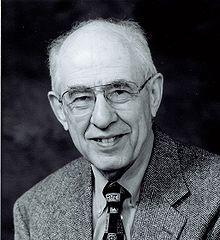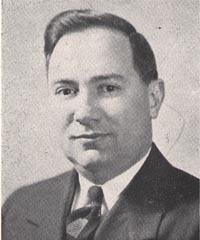Eric Hoffer Quotes - Page 22

We are least open to precise knowledge concerning the things we are most vehement about.
Eric Hoffer (1996). “The Passionate State of Mind”
Eric Hoffer (1980). “The True Believer”
Eric Hoffer (1955). “The passionate state of mind, and other aphorisms”
They who clamor loudest for freedom are often the ones least likely to be happy in a free society.
Eric Hoffer (1982). “Between the Devil and the Dragon: The Best Essays and Aphorisms of Eric Hoffer”, HarperCollins Publishers
Eric Hoffer (2011). “The True Believer: Thoughts on the Nature of Mass Movements”, p.8, Harper Collins
Eric Hoffer (1996). “The Passionate State of Mind”
"Eric Hoffer and the Art of the Notebook" by Tom Bethell in "Harper's Magazine", Entry (1951), July 2005.
"Eric Hoffer and the Art of the Notebook" by Tom Bethell in Harper's Magazine, July 2005.
"Eric Hoffer and the Art of the Notebook" by Tom Bethell in Harper's Magazine, July 2005.
"Eric Hoffer and the Art of the Notebook" by Tom Bethell in Harper's Magazine, July 2005.
"Eric Hoffer and the Art of the Notebook" by Tom Bethell in Harper's Magazine, July 2005.
Eric Hoffer (1996). “The Passionate State of Mind”
"First Things, Last Things". Book by Eric Hoffer. Chapter 8: "Thoughts on the Present", 1971.
"Reflections on the Human Condition". Book by Eric Hoffer. Section 26, 1973.
Eric Hoffer (1982). “Between the Devil and the Dragon: The Best Essays and Aphorisms of Eric Hoffer”, HarperCollins Publishers
Eric Hoffer (1982). “Between the Devil and the Dragon: The Best Essays and Aphorisms of Eric Hoffer”, HarperCollins Publishers
Eric Hoffer (1982). “Between the Devil and the Dragon: The Best Essays and Aphorisms of Eric Hoffer”, HarperCollins Publishers
Eric Hoffer (1955). “The passionate state of mind, and other aphorisms”
Eric Hoffer (1996). “The Passionate State of Mind”
Passionate intensity may serve as a substitute for confidence.
Eric Hoffer (1963). “The Ordeal of Change”
Eric Hoffer (1980). “The True Believer”
There is no reason why humanity cannot be served equally by weighty and trivial motives.
Eric Hoffer (1996). “The Passionate State of Mind”






